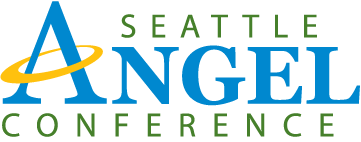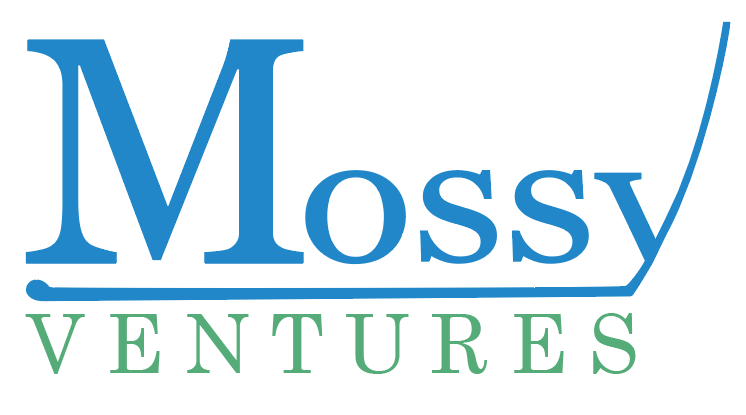If your startup is raising an early seed round this spring, the Seattle Angel Conference is a perfect springboard to meet investors and fine-tune your message. And offers a chance to win $200k investment!
The blog-series “Startup People of Seattle” introduces some of the key personas in the ecosystem to learn more about what they are doing, to share their thoughts and ideas, and to promote networking.

In our 14th interview, meet Jon Staenberg:
“Selling is an important skill I want to see in an entrepreneur. Selling is selling not just your product but your competence so others want to be part of your team. A red flag to me is if a startup raises money but the founder’s friends and previous coworkers haven’t put money in the deal. That means he hasn’t sold those who know him/her the best!”
Jon Staenberg has raised and managed multiple funds and is an experienced angel investor having invested in about 400 startups.
https://www.linkedin.com/in/jonstaenberg/
Q: Could you please introduce yourself and talk some about how you got into startups considering your background at Microsoft.
A: I moved to Seattle in 1988. I always wanted to do Venture, however, I got the advice to first get some operating experience. So, I was working with Microsoft for six years before going into Venture Capital. Eventually, I created my own fund. My fund focused as a differentiator and value proposition on connecting Seattle and San Francisco, which at the time meant connecting Microsoft to the Valley. This helped startups either partner with Microsoft or learn more about Microsoft as a competitor. Focusing on connecting Microsoft and the Valley was my way of differentiating my fund from all the funds already existing at the time. I raised two funds in which I invested alongside some of the great Sandhill VC’s. Later I joined a larger fund and became the Seattle partner for that fund. That fund was called Rustic Canyon with offices in Seattle, Silicon Valley and Los Angeles.
Aside from my fund activities, I am one of the most active angel investors in Seattle having done some 400 total investments. I have also started several companies. I am passionate about startups, investing in them, mentoring and even starting them!
Q: What startup stage do you invest in?
A: I have done investments in startups at all stages, from first money in to very late stage. I am more of an opportunistic investor. I see the world as very dynamic; Things are changing all the time. A strategy that might have made sense two years ago might not be the best anymore in the present. That concept of moving strategies is going to be even more relevant in the future because things are changing at a faster and faster rate. I should note that all this only applies to me as an individual investor. In a fund, following a clear strategy is expected. I am most excited right now about the use of Big Data in improving performance of venture investing.
Q: Would you say you don’t have an investment thesis then?
A: I would say I don’t have a traditional investment thesis. I don’t say, for example, “I only invest in blockchain.” I do have a strong focus on people and product/market-fit and market sizing, though. I also prefer investing alongside a group of value-added investors.
I am raising a new fund right now, and instead of a thesis we have an approach. Unlike traditional venture funds, which don’t use much data, our sole approach eliminating all but 100 companies is using data. So, at this stage we are not analyzing business plans, talking to entrepreneurs, looking at markets, etc., but we have a 40 Terabytes database of 500.000 companies around the world and we use AI to select the most promising ones. Finally, we evaluate and stack-rank the last 100 companies but ultimately select using more traditional methods of conversations and traditional due diligence.
For the last 30 years in venture, there are so many VC firms using similar methods and doing similar things, but the biggest ones are winning because they see all the deals. Many smaller VCs on the other hand struggle to see good deal-flow. In such a competitive environment you need to do something different. So, using data makes that difference for us. A benefit of data also is that it changes. In a traditional fund the strength, weaknesses and biases of the people involved in the fund stay with the fund. In comparison, AI allows us to learn constantly from our past decisions. The more investment decisions we make, the better we get. The old way rarely improves. Marginally yes but not really much. We can refine and tweak and get better and better. That gives us an advantage over everybody else.
Q: You said you pay a lot of attention to people. So, what are you looking for in people?
A: I am looking for sheer talent, passion, willingness to learn, and willingness to go the extra yard. And I want a great story-teller. Many of the things I am looking for in an entrepreneur are like what you want to see in an athlete. I also want to know why success is important to a founder. That informs me of what happens if things don’t go as expected, because they never go as expected. Aside from all that, I prefer working with entrepreneurs I know and have some history with…but there is nothing more exciting than finding the next great young entrepreneur.
Q: How does your personal due diligence look like?
A: It is not very structured. I really want to spend time with the founder going on walks and getting to know each other. Of course, I also look at the market etc., but the founder or founding team are what matters most to me, especially when it comes to early stage startups. Selling is an important skill I want to see in an entrepreneur, so a red flag to me is if a startup raises money but the founder’s friends and previous coworkers haven’t put money in the deal.
Q: What challenges do you see startups face regularly?
A: Entrepreneurship is hard. There are many challenges and they make it easy to get overwhelmed. One of biggest challenges in my eyes is prioritization. Considering resources are limited, you must make sure you work on what benefits you most. You must be effective. You also always have to expand your skill-set as the company grows. Mark Zuckerberg and Steve Jobs are great examples for people who grew alongside their companies. Integrity is another challenge. People don’t usually talk about this, but entrepreneurs constantly have opportunities to bend rules, so integrity matters. Another difficulty is attracting talent. Founders need to surround themselves with an amazing team.
Q: In your opinion, what are typical mistakes startups make?
I think not raising enough money is a big one. Also, founders must plan ahead for raising the next round and have conversations way before needing money. That way they can establish relationships. Another mistake is to react too late to issues/ignoring them for too long. Finally, being an entrepreneur is hard. HARD! I encourage founders/CEOs to have some kind of personal board of directors so they can have ways to share ideas and feelings.
Q: From your experience, what is the difference between being an individual angel vs. running a fund?
In a fund you have much more responsibility, so you must document much more, do background checks etc. before investing. You must also be committed to a fund for 10 – 14 years. As an individual investor, I can simply invest in what sounds good. It is less restrictive and at this point in my life I enjoy that freedom…still being involved but not having the commitment of being a GP in a fund.
Here are some things I learned from this interview:
About Seattle Angel:
A strong ecosystem creates an environment that allows startups to thrive. Seattle Angel’s goal is to strengthen Seattle’s startup ecosystem by increasing the access to funding for entrepreneurs to push their ideas further.

About the author: Sven Goepfrich
https://www.linkedin.com/in/svengoepfrich/
Sven Goepfrich is currently finishing his MBA in Syracuse. His studies focus on technology, innovation and entrepreneurship. At his school, he is working for the department of finance. Sven was actively interning with the Seattle Angel Conference in summer 2019. He is currently looking for full-time career opportunities in this field.
If your startup is raising an early seed round this spring, the Seattle Angel Conference is a perfect springboard to meet investors and fine-tune your message. And offers a chance to win $200k investment!
The best way to start early stage investing is to learn by doing. The Seattle Angel Conference is built for just that.
Seattle Angel Conference (SAC), a production of Mossy Ventures, announces the SAC 22 winners of the business competition investor education program. Seattle Angel Conference (SAC), a production of Mossy Ventures, announces the SAC 22 winners who have participated in an progressive elimination program that started with 80+ early stage startups. On November 16, six finalists […]

